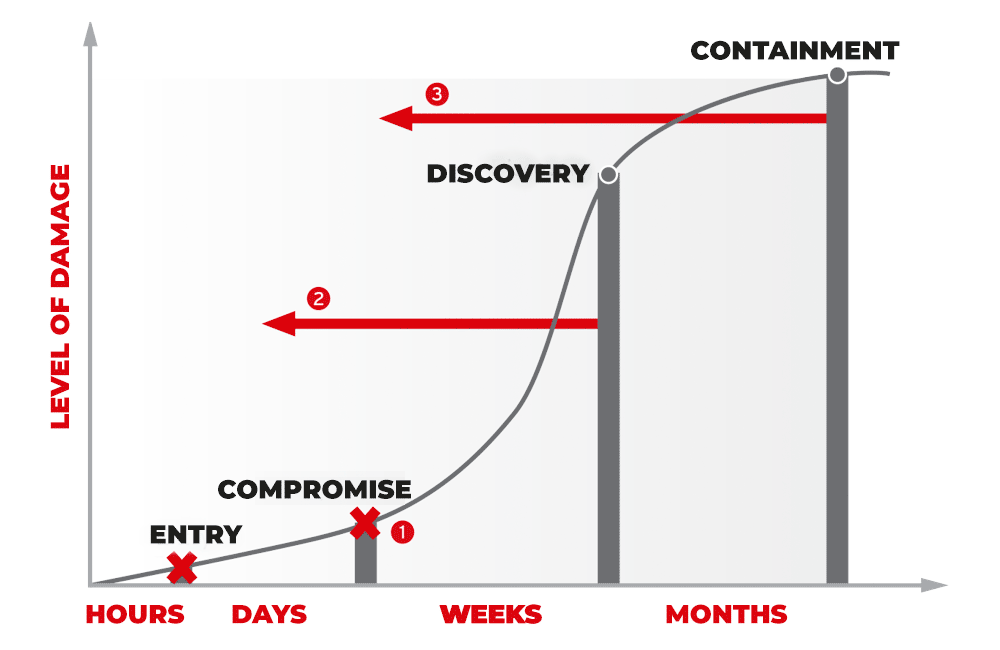Why Effective Cyber Incident Response Planning is Essential
Effective cyber incident response planning (CIRP) reduces the time to discover (TTD) which expedites containment.
Any unnecessary containment delays in an incident response will result in:
1. More confidential files and systems identified and compromised
2. More customer records, employee files and IP exfiltrated
3. More sales & work hours lost when systems are offline/ disabled
4. More systems need to be cleaned and restored to operation
